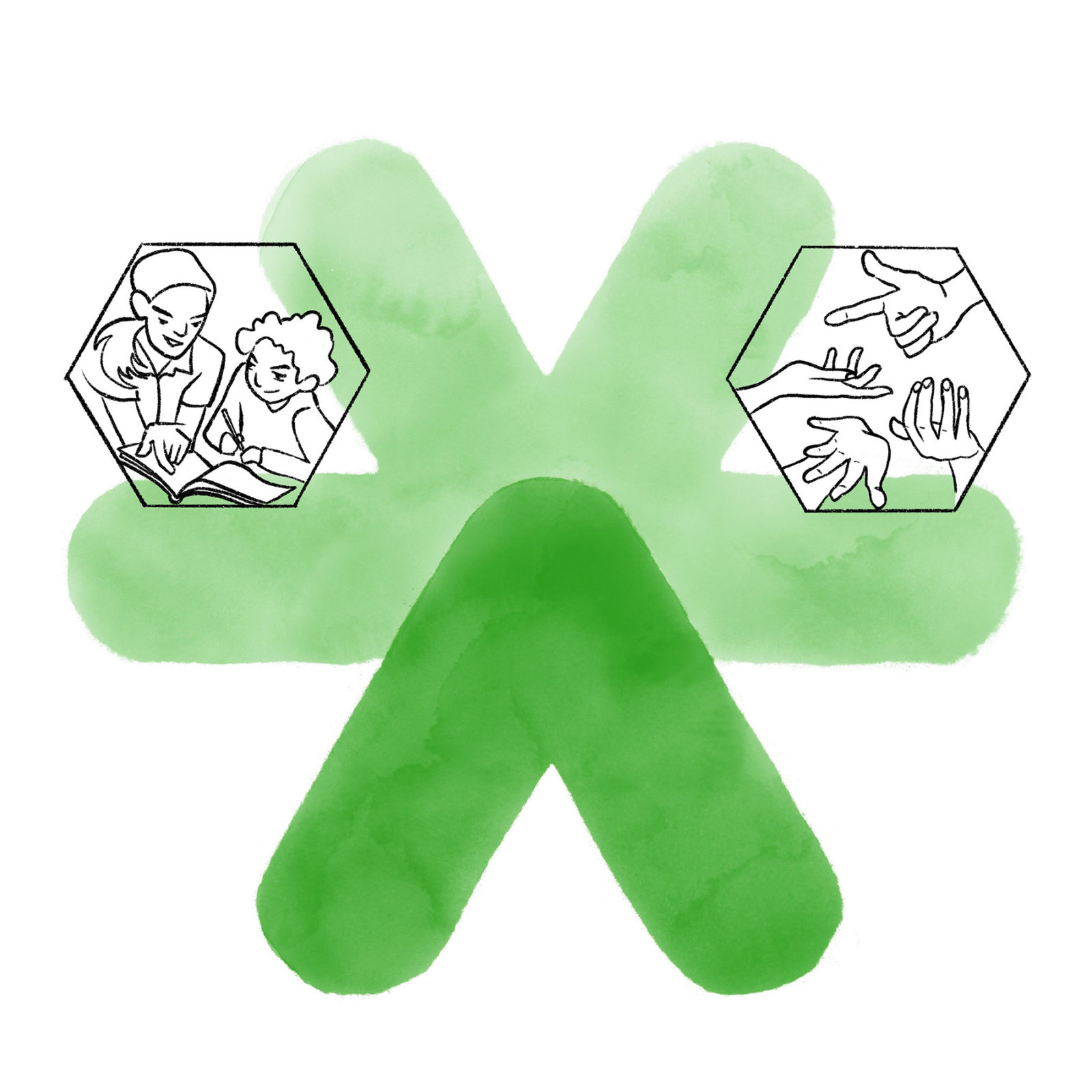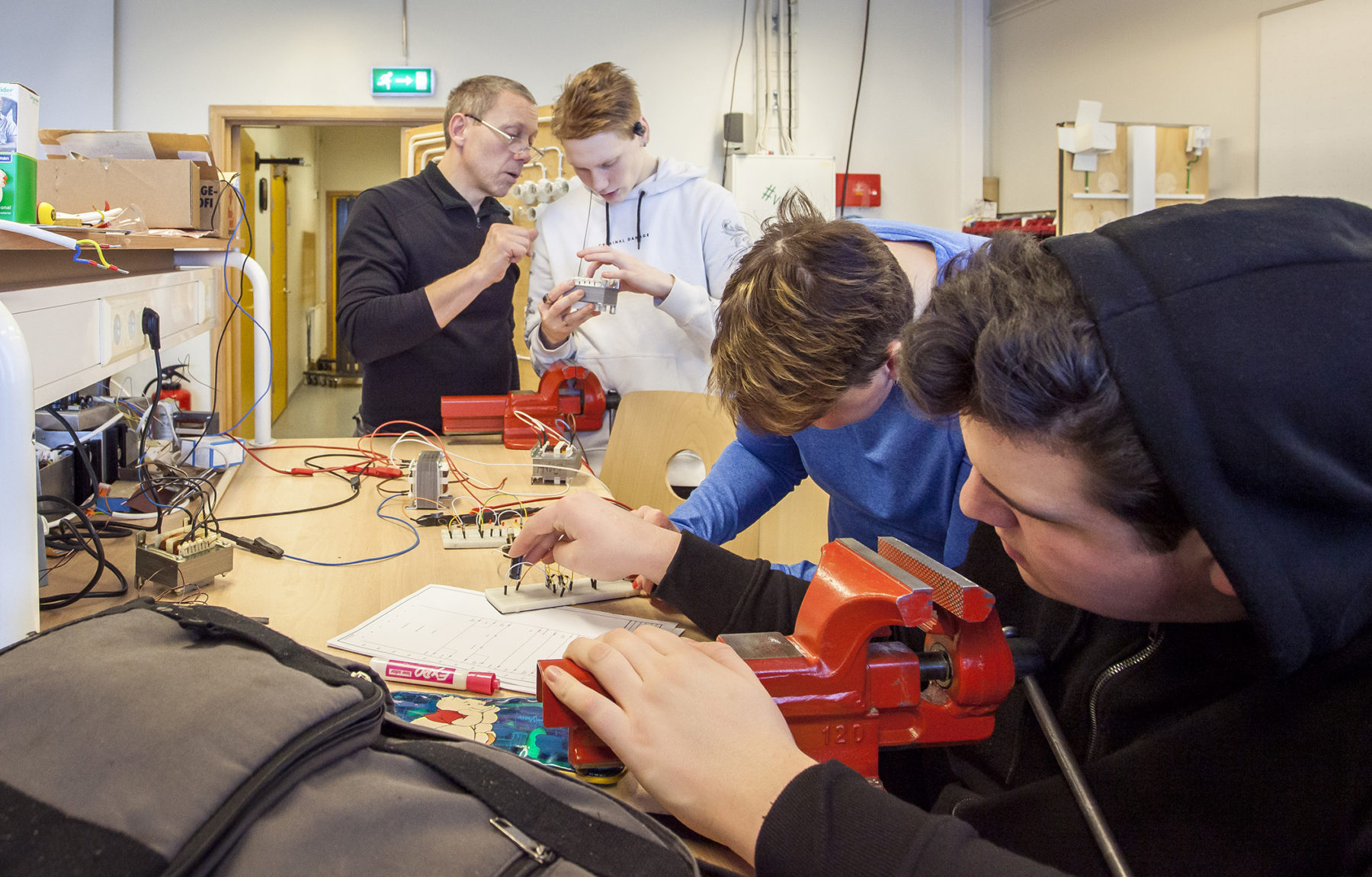5.2 Knowledge and Innovation
East Iceland will develop as a knowledge and innovation society, enhancing access to funding for startups. Educational opportunities at all levels will increase, and creativity, curiosity, and a desire for innovation will characterize the activities of educational institutions in the region.

S. Strategy for Education and Innovation
S.1 Increase opportunities for primary, secondary, and higher education regardless of residence.
Ensure good access to education at all levels.
Work to enhance on-site and distance learning at the university level, particularly in fields related to traditional and new economic pillars, healthcare, and other basic services.
Promote collaboration among educational institutions to enhance learning opportunities.
S.2 Emphasis on knowledge-seeking, creative thinking, and innovation will characterize the activities of the region’s educational institutions.
Encourage schools and educational institutions to adopt an innovative mindset, both in teaching and in the selection of study materials.
Make data on the environment, economy, community, and culture of East Iceland accessible online and in map views, and encourage their use in teaching and research.
Promote the strengthening of vocational and creative fields in primary and secondary schools, whether in on-site or distance learning.
S.3 The student community in higher education will be strengthened.
Promote a strong school community for students in both on-site and distance learning, with good facilities and a framework for study and social activities.
S.4 The innovation community will be strengthened.
Offer collaborative spaces for individuals and startups in both urban and rural areas where collaboration opportunities can arise.

Explanations for the strategy on education and innovation
Innovation in all areas of society is essential for the growth and strengthening of East Iceland and is key to addressing the challenges of the coming decades. Educational institutions in East Iceland play a significant role in this regard. Important steps were taken in 2020 when a contract was signed between Austurbrú and the Ministry of Education to prepare for the establishment of a university branch and higher education teaching.8 In the fall of 2021, preparatory studies in engineering, technology, and computer science began, with further expansion planned.9
In addition to higher education, East Iceland’s secondary schools are of great importance. Two of them, the vocational school Verkmenntaskóli Austurlands in Neskaupstaður (VA) and high school Menntaskólinn á Egilsstöðum (ME), offer programs leading to matriculation exams. Both schools lay the foundation for further education of their students, enhance the innovation capacity in the region, and emphasize good connections with the business sector, each in its own way.
The schools offer several study lines and vocational tracks, and VA has offered vocational training for years.10 Both schools emphasize innovation, with VA offering a special innovation track and a Fab Lab workshop 11in the school’s technical section open to all. ME has a technology workshop that enables students to engage in creation and design, increasing interest in further studies in arts, design, and technology. The school also plans to increase the offering of studies strongly connected to the business sector.12
The third secondary school is Hallormsstaðaskóli, offering practical and theoretical education in sustainability and creation, tackling contemporary issues with the knowledge of previous generations. The school has hosted numerous open workshops and courses with its experts, leading to job creation and better utilization of products. The school’s experimental kitchen has provided entrepreneurs with opportunities for product development using the school’s certified kitchen facilities.13
The folk high school LungA in Seyðisfjörður offers experimental art education, fostering artistic understanding and enhancing students’ artistic skills, sensitivity, and abilities, providing a good foundation for further studies.14 It is noteworthy that all these schools offer dormitory accommodations.
In East Iceland, there has been a strong emphasis on connecting all educational levels with the business sector through career presentations and workplace learning at both younger and older stages. Innovation thinking has also been practiced in preschools through projects like the “Green Flag project.” The emphasis on the connection between schools and the business sector is also strong in Austurbrú’s continuing education and knowledge work, offering various courses, longer study paths, career counseling, recognition of prior learning, and services to university students. In this context, the annual Family Technology Day, organized by VA and Austurbrú, focusing on technology, science, and innovation, should be mentioned.
There is also a need to strengthen basic education opportunities for healthcare workers to ensure staffing in the healthcare services. The East Iceland Health Institution plays an important role here, having long participated in the education of certain healthcare professionals, especially doctors, nursing assistants, and nurses, helping with recruitment and replacements. It is important to strengthen continuing and further education for healthcare workers due to the region’s distance from Reykjavik and in light of international competition for professionals.15

T. Strategy for the Innovation Environment
T.1 Strengthen the innovation capacity of the community.
Promote increased cooperation between educational institutions and businesses in the region, e.g., by establishing a platform or idea bank for solutions to the main challenges of East Iceland.
Develop a strategy for support from municipalities, educational institutions, and businesses in the region for innovation, startups, and creative industries.
Ensure that startups and entrepreneurs have easy access to professional advice in innovation.
Encourage businesses and institutions in East Iceland to utilize the knowledge and human resources available in the region.
T.2 Improve access to funds for startups and individuals.
Encourage funds to take greater account of regional conditions and issues and to finance projects for longer periods.
Promote the establishment of regional innovation funds.
Encourage startups and individuals in the region to apply for grants.
T.3 Expand the market for East Icelandic ingenuity.
Emphasize expanding the home market of East Icelandic innovation companies so that opportunities for marketing and financing good ideas are not limited to East Iceland.

Explanations for the strategy on the innovation environment
Iceland’s innovation policy aims at a society that supports innovation as the foundation for cultural and economic quality of life.16 The policy defines pathways to this goal, applicable to both regions and the entire country, and regional planning takes these into account.
A positive attitude towards innovation in all areas of society needs to be promoted. Good examples should be highlighted to increase respect and understanding of startup activities and awareness of uncertainty and risk in the innovation process.
Funding for scientific research and technology development needs to be increased, both for startups and innovation companies. Special attention must be paid to funding for the early stages of growth and access to funding that takes into account local conditions and aims to provide solutions for the region.
Access to and expansion of markets for innovation companies beyond national borders need to be improved. Larger markets provide more financing opportunities and make products more sellable. An international network is fundamental in this context.
The framework for support institutions needs to be improved, and the rules simplified, e.g., regarding the establishment and operation of companies, to increase the competitiveness of innovation.
Human resources need to be strengthened so that the innovation environment thrives. General quality of life, welfare, and security must be respected. A vibrant cultural life and a human-friendly society that is desirable to be part of and attracts talented employees from around the world must also be promoted.
